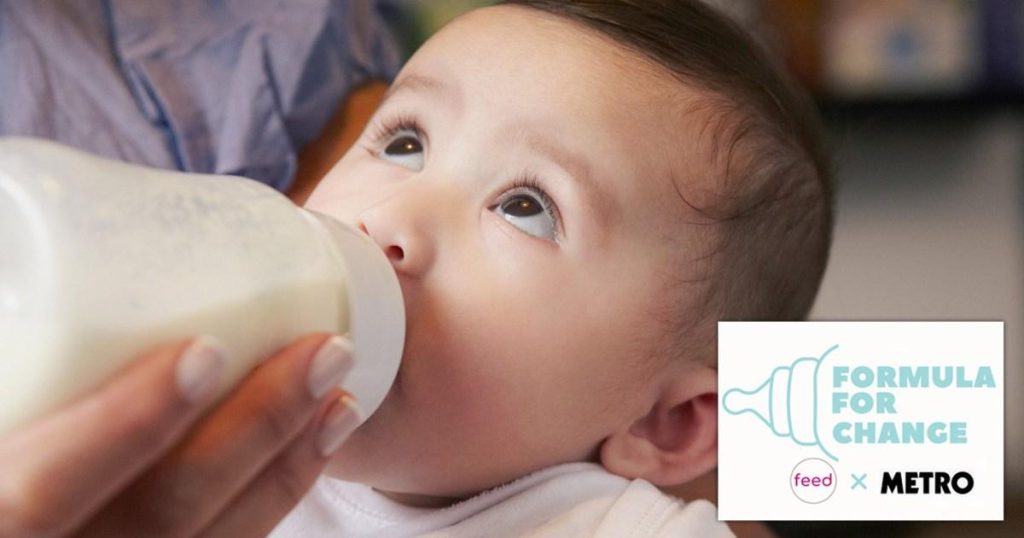The UK’s Department of Health and Social Care (DHSC) has clarified its position on the distribution of infant formula by food banks, confirming that no regulations prevent these organizations from providing formula to families in need. This clarification is a significant development for the “Formula for Change” campaign, spearheaded by Metro.co.uk and Feed, which seeks to reform infant formula legislation and improve access for struggling families. The DHSC’s statement, relayed to MP Chris Webb, confirms that the 2007 Infant Formula regulations do not prohibit food banks from distributing formula or issuing vouchers redeemable for formula. This empowers food banks to establish their own policies regarding formula provision. The campaign advocates for increased accessibility and affordability of infant formula, particularly for families facing food insecurity and financial hardship. MP Webb emphasized the vital role of formula for many families, highlighting medical reasons, feeding challenges, or personal circumstances as factors necessitating its use. The confirmation aims to alleviate the difficulties many families experience in accessing this essential nutritional resource.
This clarification addresses a long-standing ambiguity surrounding the provision of formula by food banks. Confusion arose from interpretations of UNICEF guidelines, which advise caution in distributing formula to prevent potential harm from incorrect usage. While the DHSC’s statement empowers food banks to make their own decisions, differing responses highlight the lingering impact of these guidelines. Some organizations, like the Blackpool Food Partnership and Helping Hearts, have welcomed the clarification and expressed willingness to provide formula. However, others, including the Trussell Trust, a large network of food banks, maintain their adherence to UNICEF’s recommendations, illustrating the continued influence of these guidelines despite the DHSC’s clarification. This divergence underscores the need for clearer communication and potentially revised guidance to ensure consistent practices among food banks.
The debate surrounding formula provision highlights differing perspectives on infant feeding and parental autonomy. UNICEF’s cautious stance stems from concerns about potential misuse of formula, particularly in settings with limited access to clean water or adequate sanitation. However, critics argue that such guidelines can inadvertently stigmatize formula feeding and undermine parental choice. Katherine O’Brien of the British Pregnancy Advisory Service challenges the logic behind restricting formula access through food banks when mothers in supermarkets are trusted to select appropriate formulas. She emphasizes the safety and nutritional equivalence of all first infant formulas, advocating for parental trust and access to affordable options, regardless of financial means. This perspective underlines the importance of empowering parents to make informed decisions about their children’s nutrition without facing judgment or unnecessary barriers.
The experiences of individuals working with food banks further illustrate the practical challenges and the urgent need for clear guidance. Monique Collins, formerly of the DISC food bank in Newquay, Cornwall, recounts the confusion surrounding UNICEF’s advice, highlighting contradictory information received from healthcare professionals. Her experience underscores the need for consistent and accurate information to be disseminated to food banks, enabling them to confidently support families in need. The increasing financial pressures on families further amplify the importance of formula access. Collins stresses the urgency of the situation, emphasizing the growing number of families struggling to afford this essential resource. The DHSC’s clarification is seen as a positive step towards addressing these challenges, but the need for direct communication and practical implementation remains crucial.
The “Formula for Change” campaign celebrates the DHSC’s clarification as a significant victory, marking progress towards their goal of removing barriers to affordable and accessible formula. Dr. Erin Williams of Feed, a co-founder of the campaign, emphasizes the importance of supporting families in this regard. Feed has developed clear guidance for organizations providing formula, endorsed by the Scottish Government and implemented within the NHS. This guidance recommends providing first infant formula (stage 1) as the only type suitable from birth to one year, emphasizing the nutritional equivalence of all brands and encouraging cost-saving measures. This practical approach aims to empower both organizations and families with the information needed to make informed choices and ensure access to safe and affordable formula.
Despite the DHSC’s clarification, many food banks believe that direct communication from the department is crucial to build confidence in providing first infant formula. Until such communication is received, some remain hesitant to change their practices. The “Formula for Change” campaign, launched in 2023, continues to advocate for broader legislative review, including accepting loyalty points, food bank vouchers, and store gift cards as payment for infant formula. With over 100,000 signatures and celebrity backing, the campaign continues to push for greater accessibility and affordability of this essential resource. This ongoing effort emphasizes the need for a multi-faceted approach, addressing legislative barriers, clarifying guidelines, and empowering food banks to confidently support families in need. The clarification from the DHSC signifies a positive step, yet the need for continued advocacy and practical implementation remains paramount in ensuring all families have access to safe and affordable infant formula.











